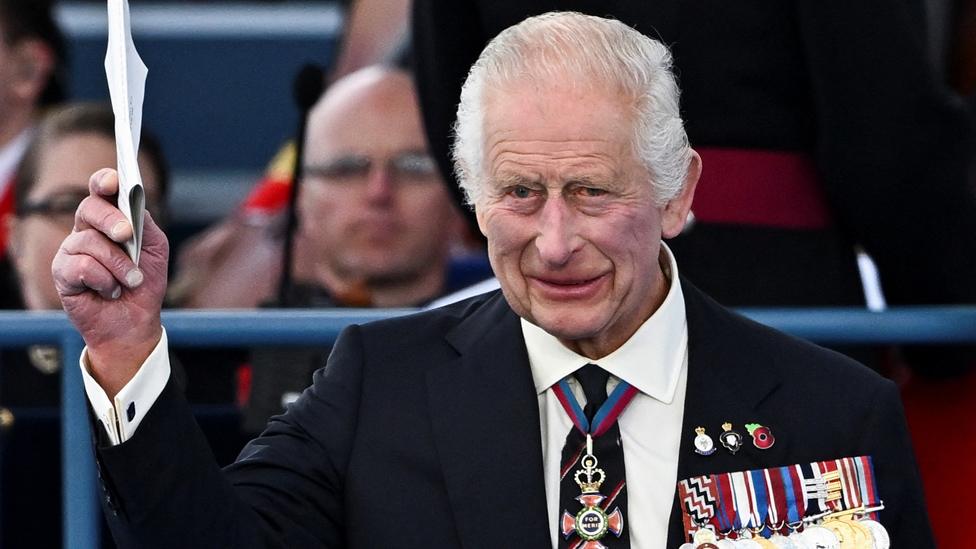The heroes who fought and fell on the longest day
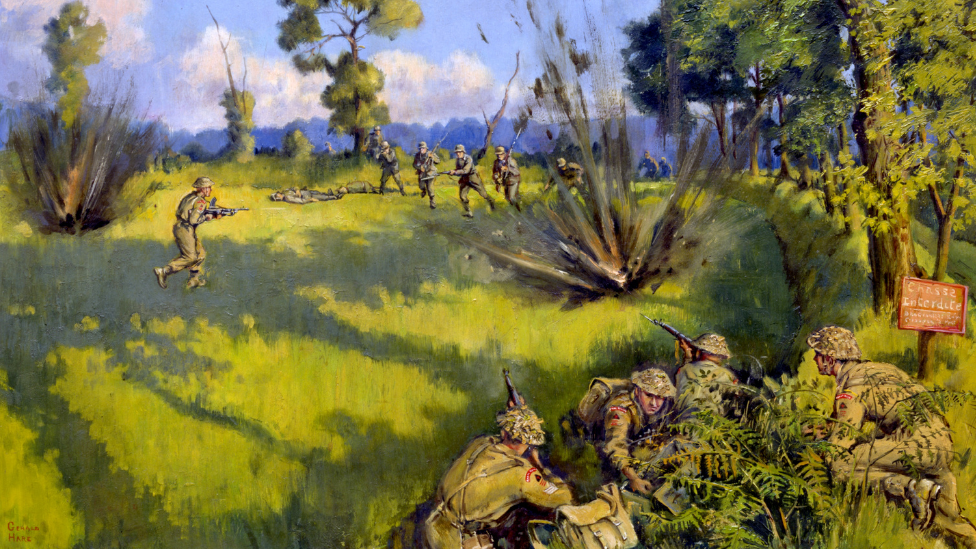
Sidney Bates' heroism after the Normandy landings was depicted in a painting by Lt Col R.G.D. Hare
- Published
Buckinghamshire men were among the first troops to set foot on Nazi-occupied French soil when the D-Day attacks began 80 years ago during World War Two.
A 23-year-old corporal who landed in Normandy with a Norfolk regiment, on 6 June 1944, died weeks later in a hail of bullets and was awarded a posthumous Victoria Cross.
Ten American aircraft based at Duxford near Cambridge were lost while supporting troops in the days after the landings.
Battalions from across the East of England played their parts in an invasion, external which changed the course of history and helped liberate Europe from Hitler's Nazis.
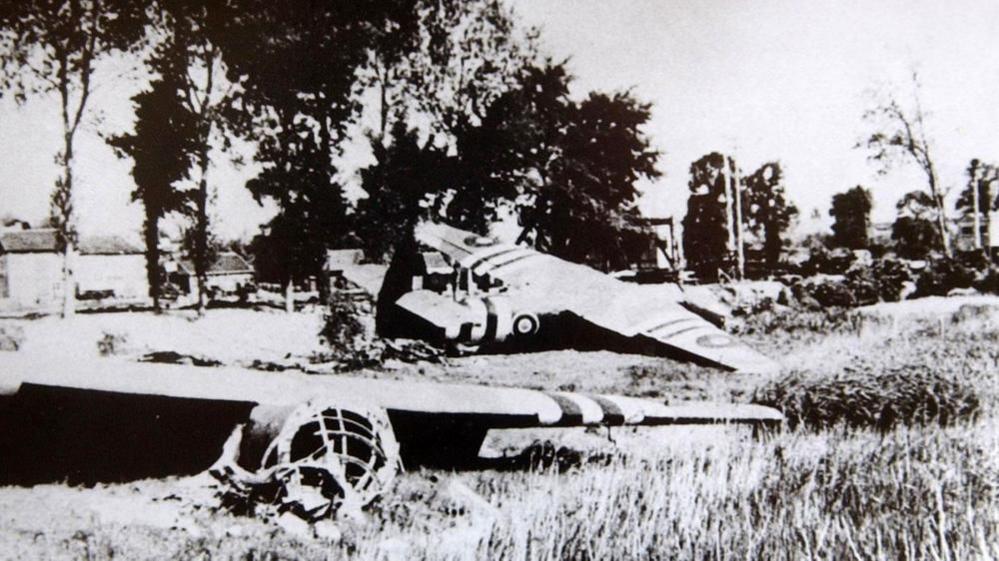
Horsa gliders landed near Pegasus Bridge during the D-Day landings in Normandy
Servicemen and women who were based in Buckinghamshire, Cambridgeshire, and Norfolk, are among tens of thousands of veterans being remembered at events, external in the UK and beyond.
Allied troops attacked five Normandy beaches - which had the codename Utah, Omaha, Gold, Juno and Sword - on D-Day.
British, Canadian and American units travelled from points across the southern coast of England.
While American troops landed at Utah and Omaha, British and Canadian soldiers touched down at Gold, Juno and Sword.
Airborne troops landed behind German lines in support.
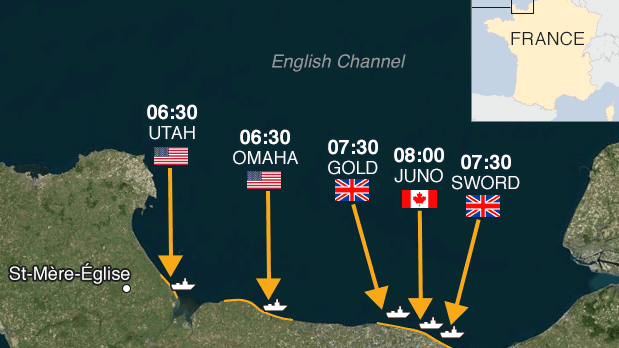
Allied troops attacked five Normandy beaches on D-Day
Members of the 2nd Battalion of the Oxfordshire and Buckinghamshire Light Infantry began the D-Day fight, the National Army Museum, external website said.
They were dropped into Normandy by glider in the early hours of 6 June 1944 to secure road bridges across the River Orne and the Caen Canal.
Their exploits, and the regiment's name, featured in the 1962 film The Longest Day, external, which tells the story of the Normandy landings.
Movie-goers heard actor Richard Todd, a D-Day veteran who played company commander Maj John Howard, cry "Up the Ox and Bucks! Up the Ox and Bucks!" as soldiers left their aircraft.
The Imperial War Museum is staging a special screening of The Longest Day, external at its site in Duxford.
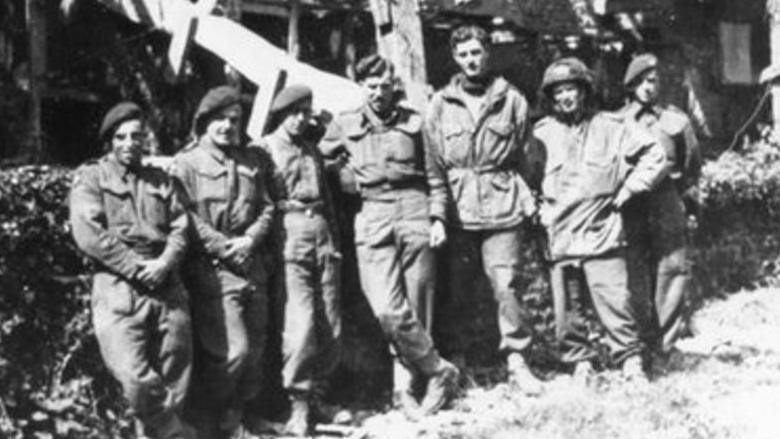
Maj John Howard (centre), with soldiers in Normandy in 1944, led an attack on Pegasus Bridge
Cpl Sidney Bates, 23, of the 1st Battalion of the Royal Norfolk Regiment was amongst those who landed in Normandy on D-Day.
He was posthumously awarded the Victoria Cross after he later died from gunshot injuries.
A citation, which was published in a London Gazette supplement on 2nd November 1945, read: "Corporal Bates then seized a light machine-gun and charged the enemy, moving forward through a hail of bullets and splinters and firing the gun from his hip.
"He was almost immediately wounded by machine-gun fire and fell to the ground, but recovered himself quickly, got up and continued advancing towards the enemy, spraying bullets from his gun as he went."
A 2021 BBC article tells of CpL Bates' "extraordinary feat in holding Perrier Ridge in the face of an advance by two divisions including Panzer tanks."
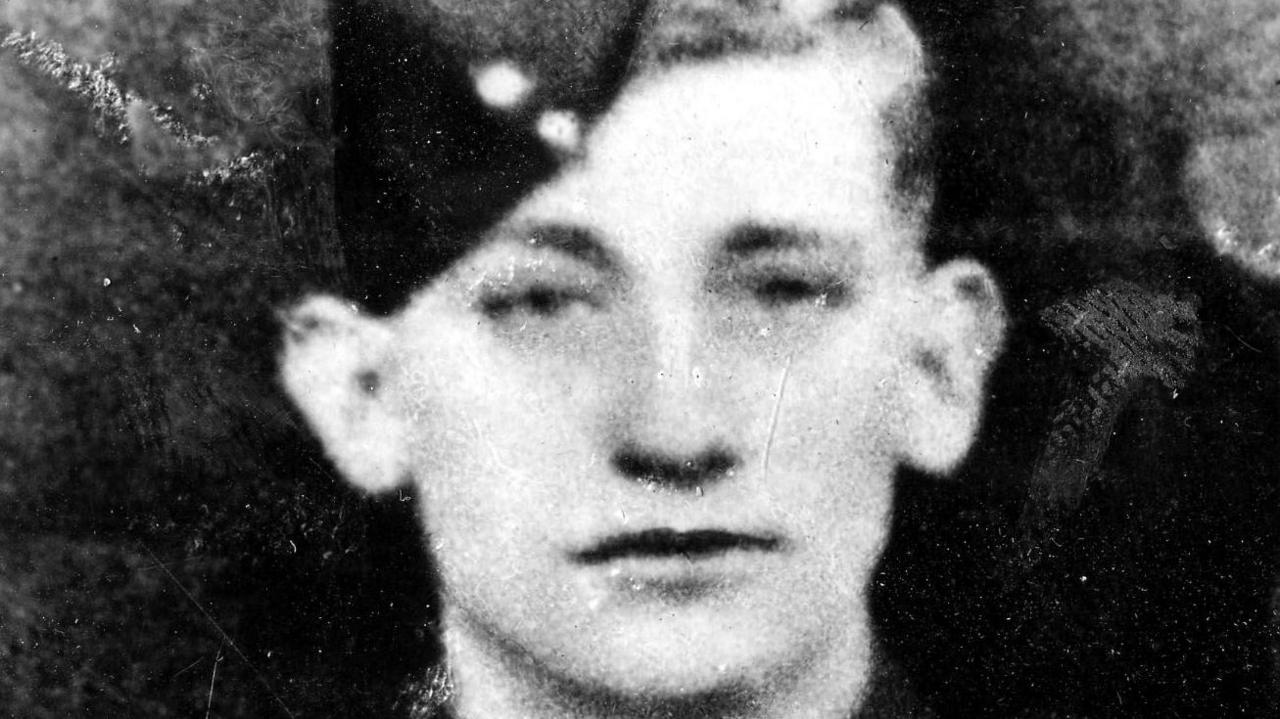
Cpl Sidney Bates died in a hail of bullets weeks after landing in Normandy
American fliers based at Duxford near Cambridge were also involved.
The Imperial War Museum website said three squadrons of the 78th Fighter Group flew missions throughout D-Day, attacking railway marshalling yards and trains in an attempt to stop German counter-attacks.
Pilots continued to attack targets behind the beaches after 6 June.
The post says 10 aircraft were lost on 10 June - the group's "darkest day". Seven of the group's pilots were buried in Omaha cemetery - behind Omaha Beach.
American B-17 Flying Fortress bombers, external based at Thorpe Abbotts, Norfolk, also flew missions on D-Day.
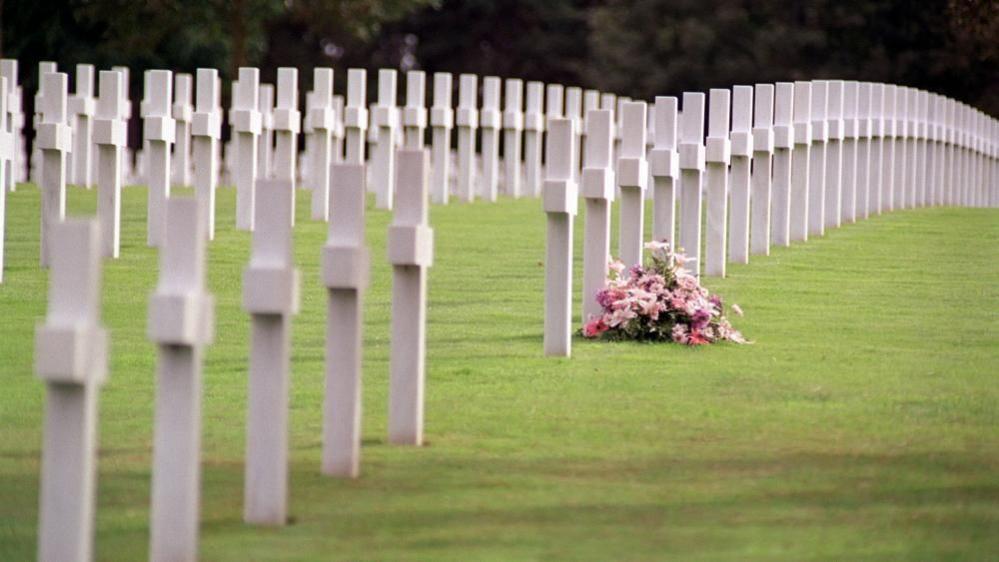
Flowers at Omaha Cemetery in Normandy, France: tens of thousands of allied troops are being remembered
Follow Beds, Herts and Bucks news on Facebook, external, Instagram, external and X, external. Got a story? Email eastofenglandnews@bbc.co.uk, external or WhatsApp us on 0800 169 1830
- Published5 June 2024
